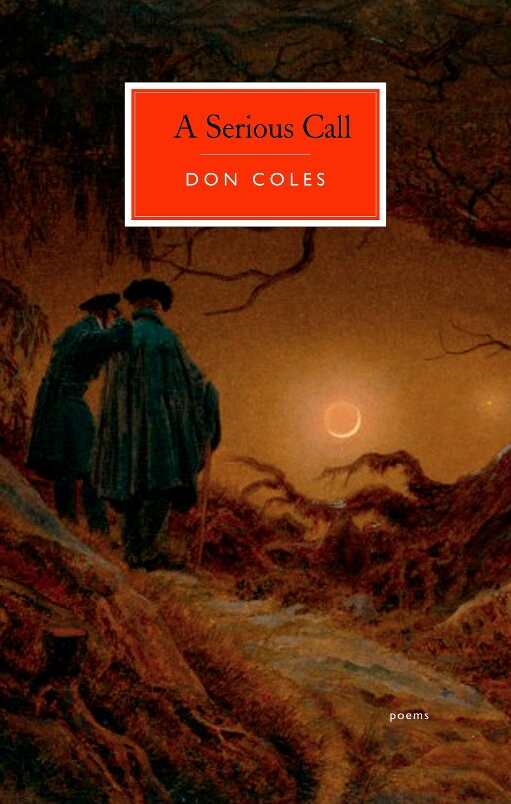A Serious Call
A Serious Call is a quiet, beautifully rendered story of our relationships to objects, books, and the people around them.
Don Coles’s sixteenth book, A Serious Call, is, among other things, an homage to memory, books, and the memories of books. As the winner of some of Canada’s most prestigious literary awards and with a career that stretches back forty years, Coles has earned this vantage point. The speakers of these poems often fixate on objects—be it a yearbook or a photograph—and attempt to reconcile past ideals with present realities.
The book is organized in two parts. The first shows Coles’s range, from an eight-line, loose translation of a Goethe poem to a three-page digressive remembrance. A twenty-one-page memoir/prose poem, from which the book takes its title, makes up the second part. The first poem, “poem,” ends with a stunning line that encapsulates the book’s preoccupation with time: “I was waiting to see if / it could be long ago.”
In “People I Knew for One Year,” the speaker lists individuals that have passed in and out of his life, applying later-gained knowledge to recontextualize them and perhaps understand them better. Toward the end of the poem, he reflects on his first grade teacher, saying, “She had blond braids / wound about her head like a Rhine maiden / although I didn’t know about Rhine maidens / then.” The intriguing image strikes a suggestive and magically complex note. Did time and distance make the speaker aware of his longing? Or did the knowledge of Rhine maidens give his older self the proper language?
Like Proust’s madeleine and lime-blossom tea, objects prove transportive. In “Flying,” the speaker describes a ring he once bought for his daughter, who broke it shortly after she received it: “what I mourned / was the possible lessening, prospective loss, of the longtime / reliance my daughter and I had both surely had on each other.” Coles writes with an easy lyricism. The ever-present assonance and alliteration, wrapped up in warm tones, go almost unnoticed, and create the cumulative effect of a fireside sage.
Sometimes, digressions cajole the pieces, causing them to teeter on the metapoetic. These moments may steer less patient readers away, but Coles exhibits moderate restraint and always reels back to the subject at hand. “A Serious Call,” in which Coles fondly recalls his days as a bookseller in Southwark, is the most obvious example. Amid fond recollections of the books he and his manager-friend, John, discovered, Coles interjects, “What comes next, granted that this poem’s arc / has to be brief, (since John Rolph, previously / identified here, Kafka-like, only as ‘the Manager’ … the poem knows nothing of before or after).”
A Serious Call is a quiet, beautifully rendered story of our relationships to objects, books, and (the memories of) the people around those objects and books. The volume ultimately casts a charming reflection on time and aging; for the literary devotee, it shouldn’t be missed.
Reviewed by
Josh Cook
Disclosure: This article is not an endorsement, but a review. The publisher of this book provided free copies of the book and paid a small fee to have their book reviewed by a professional reviewer. Foreword Reviews and Clarion Reviews make no guarantee that the publisher will receive a positive review. Foreword Magazine, Inc. is disclosing this in accordance with the Federal Trade Commission’s 16 CFR, Part 255.

